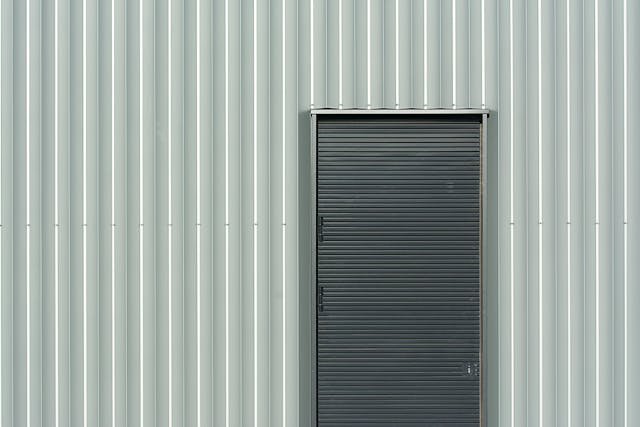Last Updated on March 14, 2025 by Rida Gul
Aluminium doors have become a hallmark of contemporary architecture, seamlessly blending functionality with sleek, minimalist aesthetics. Their rising popularity in both residential and commercial projects is attributed to aluminium’s inherent strengths—durability, flexibility, and a modern look that complements a wide range of design concepts. This article delves into the advantages of aluminium doors, their applications, and how they contribute to the overall design and efficiency of modern buildings.
Table of Contents
The Appeal of Aluminium
Aluminium, a lightweight yet robust metal, offers unmatched versatility in door design. Its high strength-to-weight ratio allows for the creation of large doors that provide unobstructed views and abundant natural light without compromising structural integrity. Additionally, aluminium’s natural resistance to corrosion ensures that doors maintain their aesthetic appeal and functionality even in harsh environments.
Advantages of Aluminium Doors
- Durability and Low Maintenance: Aluminium doors are renowned for their longevity. Unlike wood, which may warp or rot, or steel, which can rust, aluminium doors withstand the elements with minimal care. They require only occasional cleaning to retain their appearance, making them an ideal choice for both high-traffic commercial settings and low-maintenance home environments.
- Energy Efficiency: Modern aluminium doors are designed with thermal efficiency in mind. The incorporation of thermal breaks within the door frames significantly reduces heat transfer, helping to keep indoor spaces comfortable year-round while reducing energy costs. When combined with energy-efficient glazing, aluminium doors can play a crucial role in achieving the energy performance targets of new buildings.
- Design Flexibility: One of the most compelling attributes of aluminium doors is their design versatility. Aluminium can be shaped into virtually any configuration, offering endless possibilities for customisation. From large sliding or bi-folding doors that open up spaces and blur the lines between indoors and out, to elegant front doors that make a statement, aluminium allows architects and designers to realise their vision without compromise.
- Eco-Friendliness: Aluminium is highly recyclable, with the ability to be reused without losing its properties. The use of recycled aluminium in door manufacturing not only reduces the environmental impact but also contributes to the sustainability goals of construction projects. This makes aluminium doors a preferred choice for eco-conscious homeowners and developers.
Applications in Modern Architecture
Aluminium doors are incredibly versatile, suitable for a variety of applications across residential and commercial projects:
- Residential Properties: In homes, aluminium doors are often used as entrance doors, patio doors, and in conservatories, offering security, efficiency, and a modern aesthetic. Their ability to create seamless transitions between indoor and outdoor spaces makes them particularly popular in contemporary home design.
- Commercial Buildings: Aluminium doors are a staple in commercial architecture, where durability and maintenance are key considerations. They are widely used in office buildings, retail spaces, and hospitality venues, providing a sleek, professional look while meeting the practical demands of high-traffic environments.
- Public and Institutional Buildings: Schools, hospitals, and public buildings benefit from the durability, security, and low maintenance of aluminium doors, along with the flexibility to meet specific design requirements and compliance with accessibility standards.
Conclusion
Aluminium doors represent a synthesis of form and function, offering a combination of durability, energy efficiency, and aesthetic flexibility that is unmatched by other materials. As architects and builders continue to push the boundaries of design and sustainability, aluminium doors stand out as a smart choice for modern construction projects. Whether in a residential setting, a commercial complex, or a public institution, aluminium doors enhance the architectural appeal and performance of buildings, making them a cornerstone of contemporary design.
















